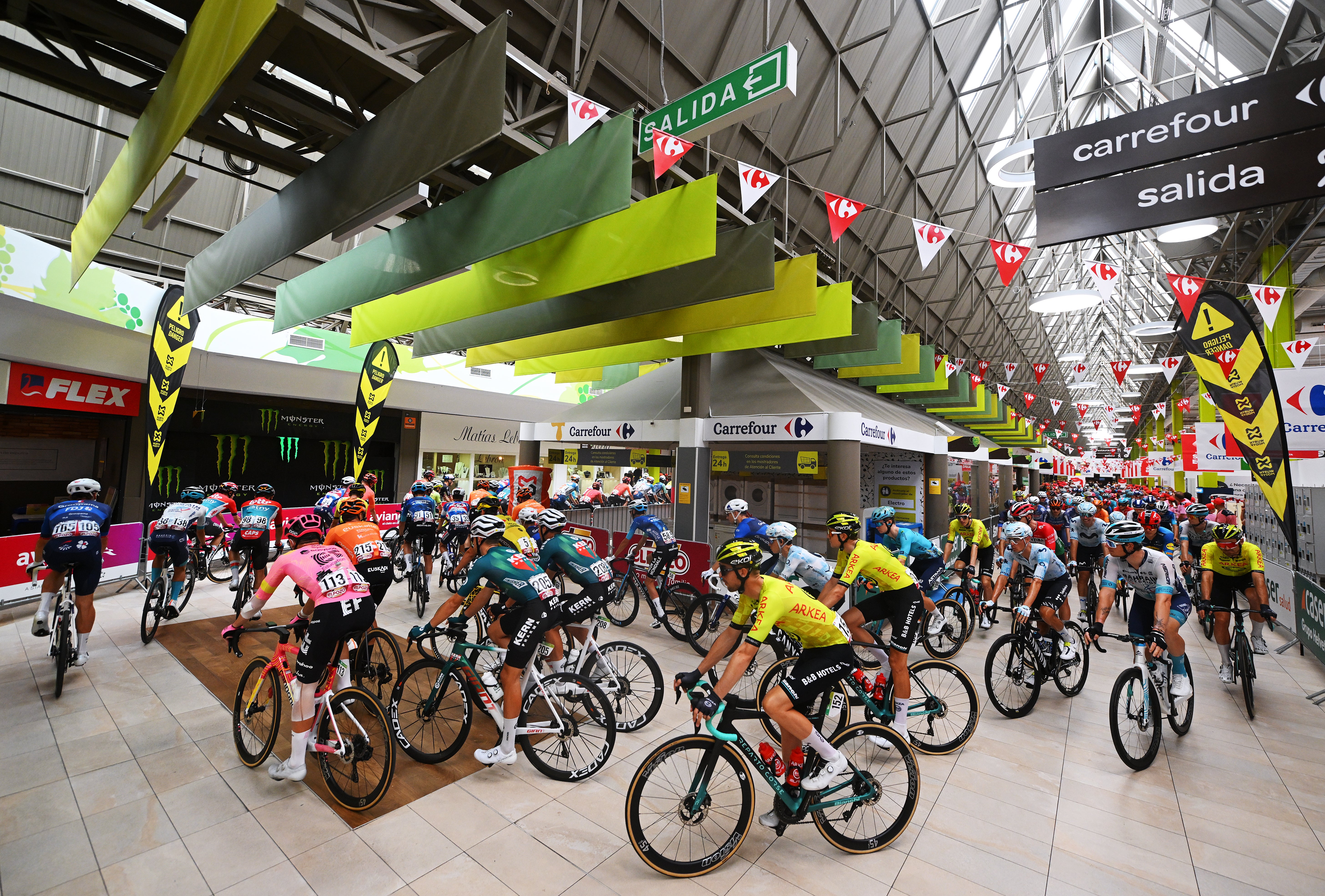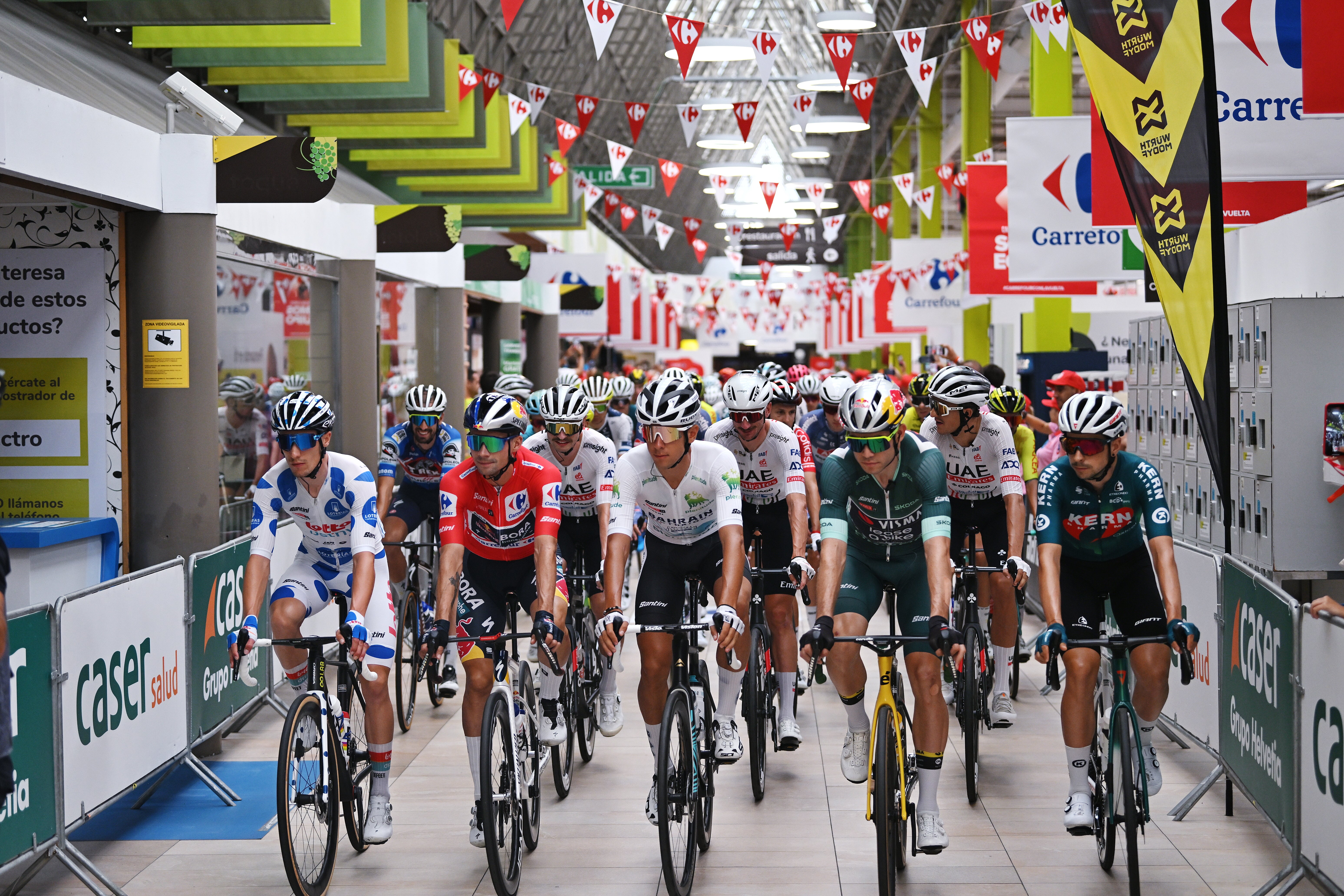Vuelta a Espana stage bizarrely starts inside a Spanish supermarket
The peloton embarked from the aisles of a Carrefour for the sixth stage of the Spanish grand tour

Your support helps us to tell the story
From reproductive rights to climate change to Big Tech, The Independent is on the ground when the story is developing. Whether it's investigating the financials of Elon Musk's pro-Trump PAC or producing our latest documentary, 'The A Word', which shines a light on the American women fighting for reproductive rights, we know how important it is to parse out the facts from the messaging.
At such a critical moment in US history, we need reporters on the ground. Your donation allows us to keep sending journalists to speak to both sides of the story.
The Independent is trusted by Americans across the entire political spectrum. And unlike many other quality news outlets, we choose not to lock Americans out of our reporting and analysis with paywalls. We believe quality journalism should be available to everyone, paid for by those who can afford it.
Your support makes all the difference.The strange world of professional cycling produced another reminder of the sport’s idiosyncrasies as the sixth stage of the Vuelta a Espana began inside a Spanish supermarket.
Race leader Primoz Roglic and the rest of the peloton rolled out of the dairy aisle of a Carrefour in Jerez de la Frontera to begin a lumpy 185.5km route to Yunquera.
The quirky stage start came as a result of the Vuelta’s sponsorship deal with the French chain, with the world’s seventh-largest retailer now in a 12th year as the Spanish grand tour’s primary partner.

Carrefour also sponsors the leader’s red jersey, which is given to the rider at the top of the general classification by a company employee after every stage.
Road cycling is heavily reliant on sponsorship for funding with the sport generally free to watch for spectators at the roadside, and ticket revenue thus not a primary stream of income.
A high churn rate of partners often forces teams to change names within or between seasons, with Roglic’s Red Bull Bora-Hansgrohe adding the energy drink manufacturer as a title partner ahead of the Tour de France.
The polka dot jersey worn by the rider at the top of the King or Queen of the Mountains classification at the Tour was sponsored by Carrefour until 2019, when rival E Leclerc secured a significant deal.
Two of the 2024 Vuelta’s 22 teams are also partly backed by Carrefour’s rivals: Lidl-Trek and Intermarche-Wanty.
Team sponsors tend to seek prominent performances for added television, photo and written exposure, with smaller outfits unlikely to compete for stage victories often sending riders up the road in breakaways to ensure significant coverage.
The trip to the supermarket is far from the first wacky setting for a Vuelta stage. The opening team time trial in 2013 saw riders begin on an oyster-breeding raft in Galicia, while the peloton took off from an aircraft carrier a year later in Cadiz to celebrate the Spanish navy.
Join our commenting forum
Join thought-provoking conversations, follow other Independent readers and see their replies
Comments